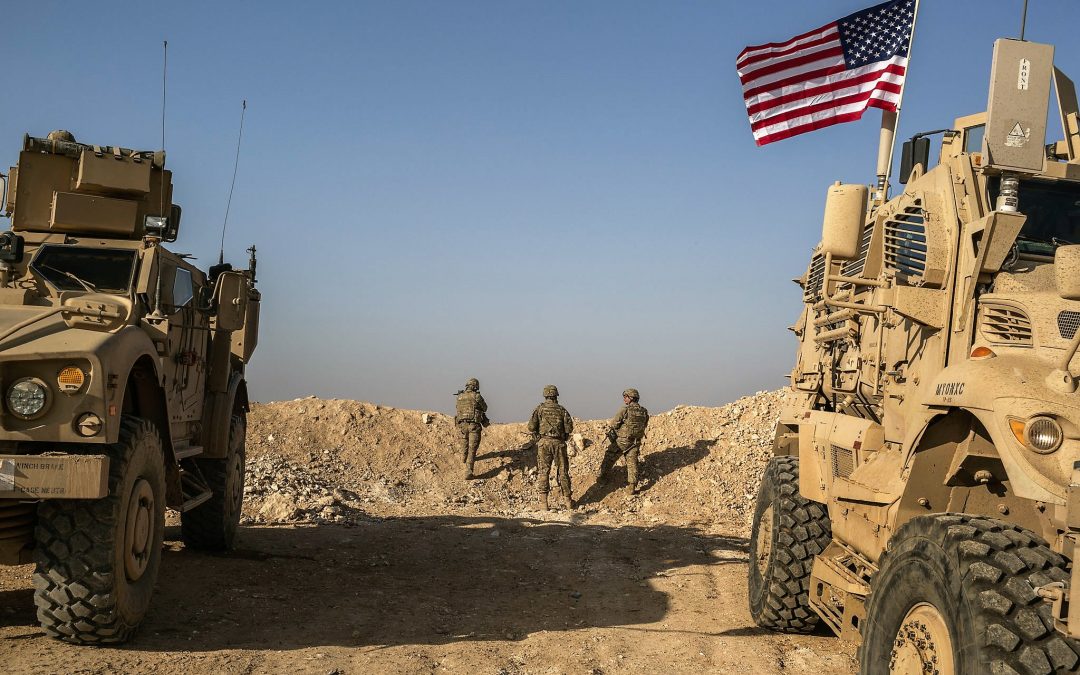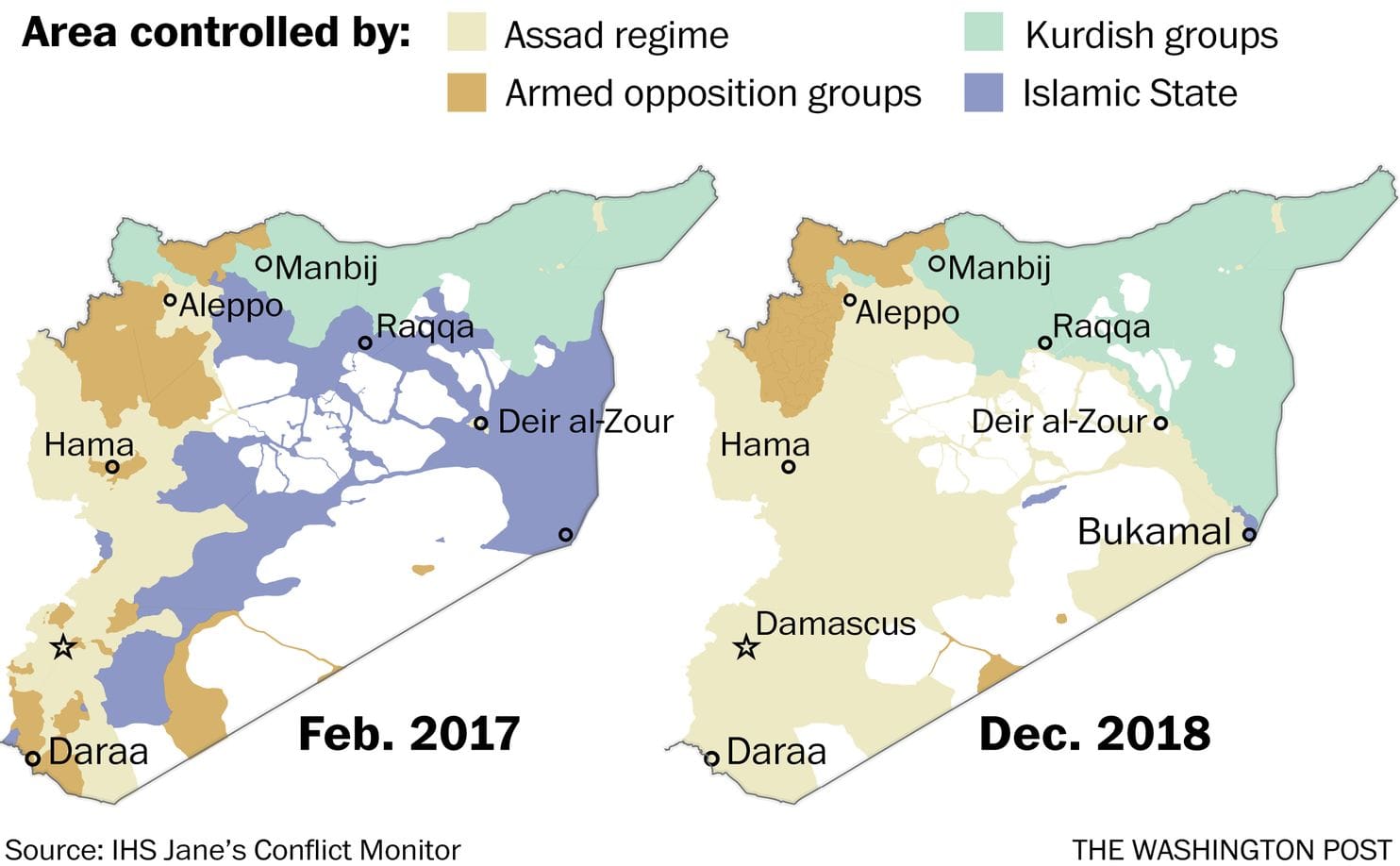President Trump said today the Islamic State in Syria has been defeated, and some of the 2,000 U.S. troops battling the terrorist group will begin coming home.
It was a surprise move that drew a swift rebuke from key Republican hawks and some foreign policy experts.
We have defeated ISIS in Syria, my only reason for being there during the Trump Presidency.
— Donald J. Trump (@realDonaldTrump) December 19, 2018
Pentagon officials who had sought to talk Trump out of the decision as late as this morning argued that such a move would betray Kurdish allies who have fought alongside American troops in Syria and who could find themselves under attack in a military offensive now threatened by Turkey.
One American official said that Kurdish leaders were informed of the president’s decision this morning.
Emerging from a Senate conference lunch with Vice President Mike Pence and other Republican senators, Sen. Lindsey Graham (R-SC) attacked the decision to withdraw troops from Syria.
“A lot of us were blindsided,” Graham said, likening the withdrawal to “Iraq all over again” — a reference to the Obama administration’s decision to end the military mission in Iraq in 2011.
The departure of American troops there allowed the deadly strengthening and spread of the Islamic State.
“If Obama had done this, all of us would be furious,” Graham said. “If Obama had done this, we’d be going nuts right now: ‘How weak, how dangerous.’” He said he wanted Congress to hold hearings about the consequences of the decision, and asked why lawmakers were not notified of Trump’s order.
In a series of meetings and conference calls over the past several days, Defense Secretary Jim Mattis and other senior national security officials have tried to dissuade Trump from a wholesale troop withdrawal, arguing that the significant national security policy shift would essentially cede foreign influence in Syria to Russia and Iran at a time when American policy calls for challenging both countries.
The Islamic State, a militant group also known as ISIS, has lost an nearly all of its territory in Iraq and Syria, where the 2,000 American troops are mostly advising a militia made up of Kurdish and Arab soldiers.
Less than a week ago, Brett McGurk, the United States envoy to the coalition fighting the Islamic State, said continuing to train Syrian security forces as American troops are doing, “will take some time.”
“The military mission is the enduring defeat of ISIS,” McGurk told reporters on Dec. 11. “We have obviously learned a lot of lessons in the past, so we know that once the physical space is defeated, we can’t just pick up and leave. So we’re prepared to make sure that we do all we can to ensure this is enduring.”
“Nobody is declaring a mission accomplished,” he said.
Russian officials expressed cautious enthusiasm for Trump’s surprise decision to pull troops out of Syria.
“The withdrawal of American troops from Syria will always be welcomed in Moscow,” said Elena Suponina, a Middle East expert in the Russian capital. There was no immediate response from the Kremlin or the Russian Foreign Ministry.
Russia has long demanded U.S. forces withdraw from Syria, arguing that they’re in the Middle Eastern country illegally because they lack consent of President Bashar al-Assad’s regime.
Along with Iran, Russia is a principal ally of Assad’s.
President Vladimir Putin sent in Russian forces to help tip the war that began in 2011 in Assad’s favor against U.S.-backed rebels.
The US military provided a forceful and blatant block to Iranian and Russian influence in the present and future Syria.

